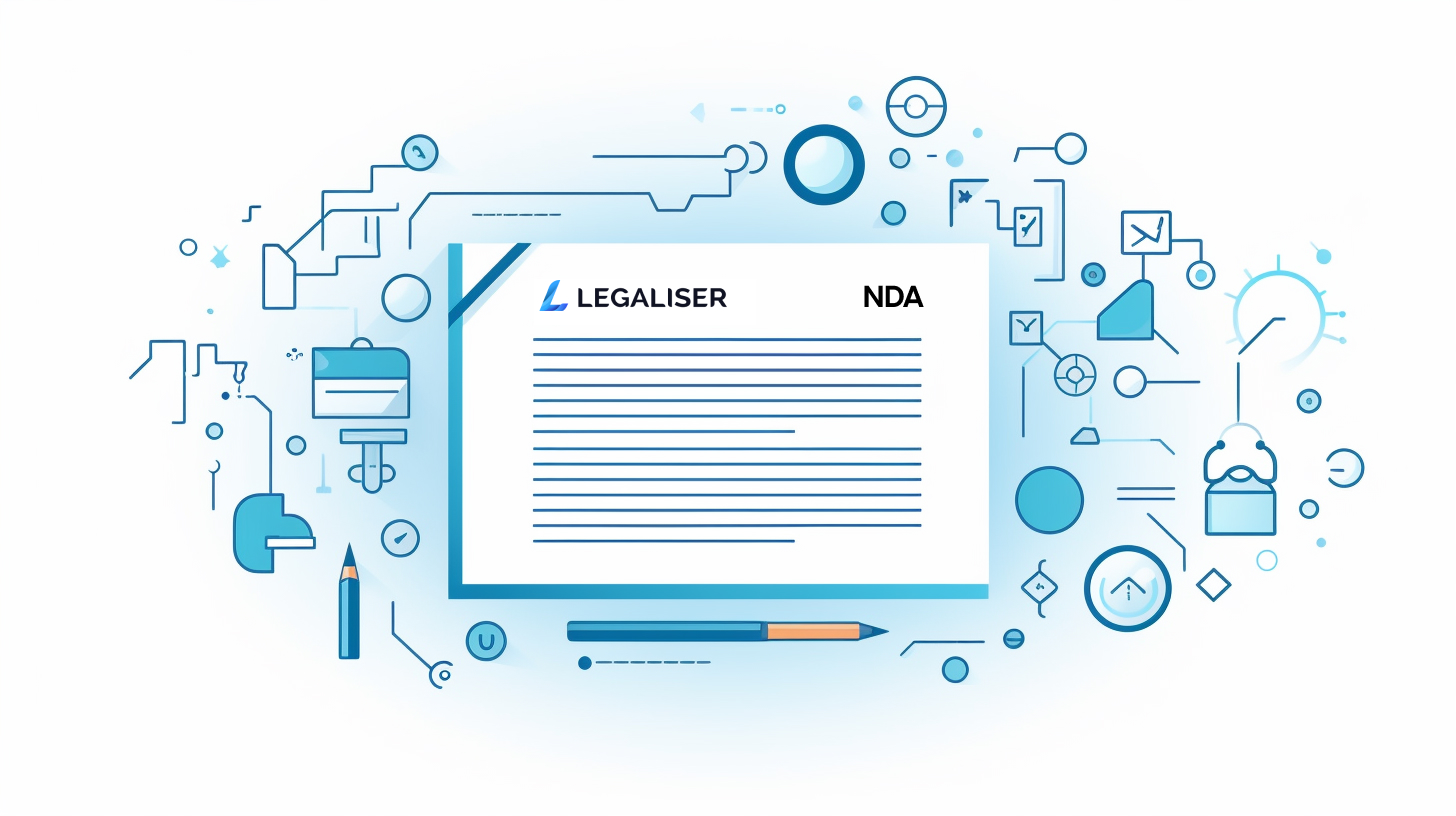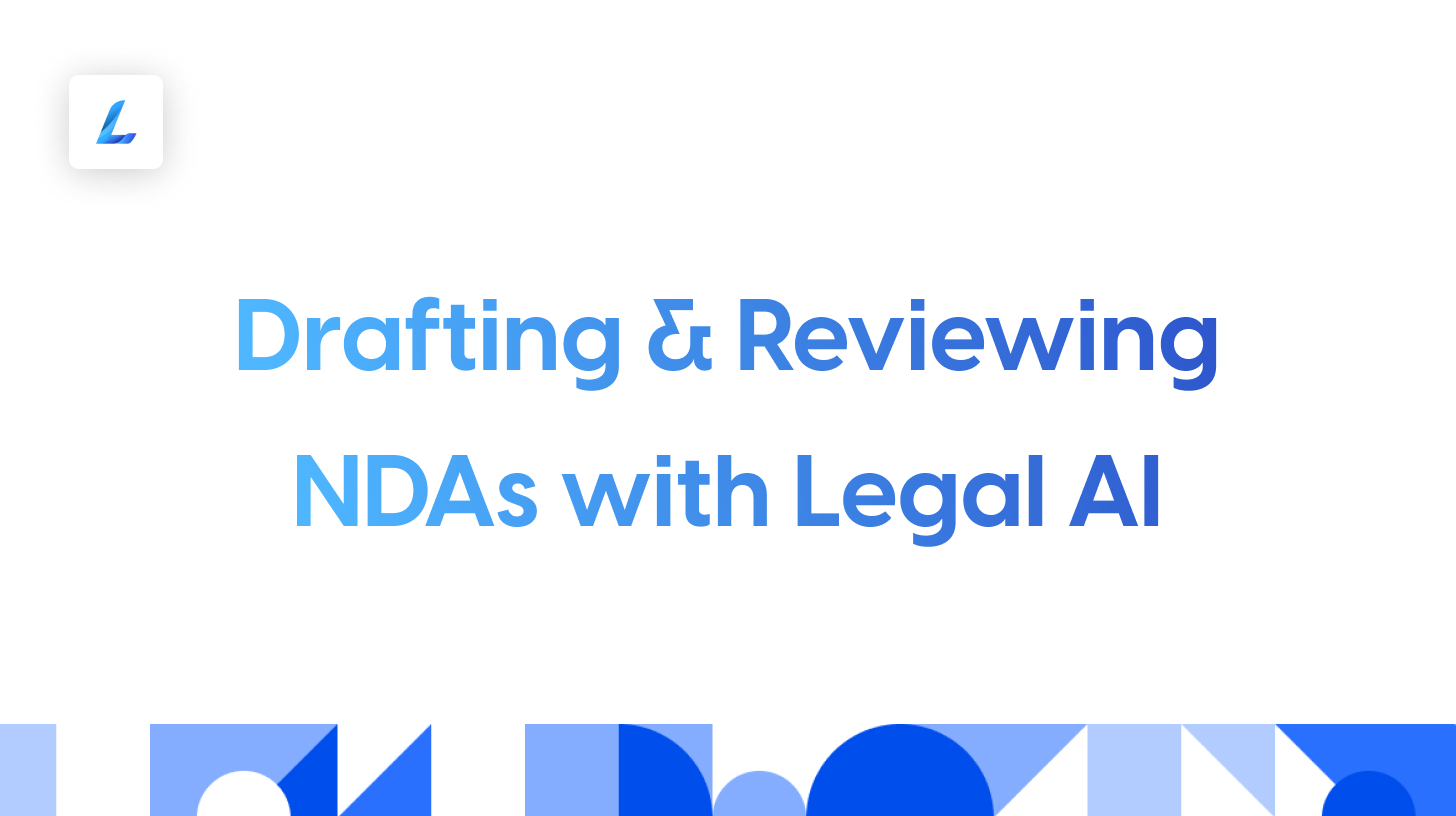This article focuses on the legal difficulties businesses can face and how to draft and review Non Disclosure Agreements with Legal AI.
In the evolving business landscape, where information is a valuable asset, safeguarding sensitive data and intellectual property has become paramount. Non-Disclosure Agreements (NDAs) play a crucial role in facilitating collaboration while ensuring the confidentiality of proprietary information.
However, the complexity of legal language, coupled with the need for precision, has often made the drafting and reviewing of NDAs a time-consuming and meticulous process. Enter Legal AI (Artificial Intelligence), a game-changing technology that is reshaping the way NDAs are crafted and evaluated. In this article, we delve into the innovative role of Legal AI in the drafting and reviewing of NDAs, exploring its benefits and the transformative potential it brings to the realm of legal services.
The Evolution of NDAs: A Critical Element of Modern Business
In the digital age, where information can be disseminated at the click of a button, maintaining confidentiality is essential for businesses that wish to protect their intellectual property, trade secrets, and other sensitive information.
NDAs serve as legal contracts that outline the terms and conditions under which one party agrees not to disclose certain confidential information to third parties. These agreements are used in various scenarios, including business partnerships, employee relationships, and collaborations with contractors and vendors.
The drafting and reviewing of NDAs are intricate processes that demand a profound understanding of legal language, potential loopholes, and the specific needs of the involved parties. As businesses seek to refine their operations and protect their interests, the intersection of NDAs and Legal AI emerges as a transformative solution.
Legal AI: A Paradigm Shift in Legal Services
Legal AI refers to the application of artificial intelligence technologies in the field of law to streamline processes, enhance accuracy, and deliver efficient legal services. By harnessing the power of natural language processing, machine learning, and data analytics, Legal AI is reshaping various aspects of legal practice, including contract drafting and review.
The integration of Legal AI into the creation and assessment of NDAs introduces a new level of precision, efficiency, and accessibility. This technology has the potential to automate how NDAs are crafted, enabling businesses to safeguard their interests with greater confidence.
Drafting NDAs with Precision and Efficiency
Drafting NDAs requires meticulous attention to detail to ensure that the terms accurately reflect the intentions of the parties involved. Legal AI tools equipped with natural language processing capabilities can review the specifics of the confidential information being protected and generate tailored NDA clauses accordingly. This significantly expedites the drafting process and reduce the risk of errors that might arise from manual drafting.
Moreover, Legal AI can aid in maintaining consistency across multiple NDAs. Businesses often encounter the need to create similar agreements for different parties, and Legal AI ensures that standard clauses are consistently included, reducing the possibility of oversight.
Reviewing NDAs: Enhancing Accuracy and Compliance
The reviewing of NDAs is a critical step to ensure that the agreement aligns with legal standards and best practices. Traditionally, this process involves manual scrutiny to identify potential ambiguities, discrepancies, or biassed terms. However, Legal AI disrupts this process by offering a comprehensive analysis of NDAs in a fraction of the time it would take a human reviewer.
Legal AI tools can swiftly scan NDAs, flagging potential issues and suggesting modifications to improve clarity and compliance. These tools can analyze legal language, assess potential legal risks, and ensure that the NDA effectively safeguards the interests of the parties involved. This efficiency not only accelerates the review process but also enhances the overall accuracy of the agreement.
Fostering Fairness and Transparency
One of the challenges often encountered in NDAs is the potential for biassed or unfair terms. Legal AI’s impartial nature helps mitigate this concern by identifying clauses that might disproportionately favour one party over another. This fosters transparency during negotiations, ensuring that both parties are fully aware of the terms and implications of the agreement.
Additionally, Legal AI can identify clauses that might infringe upon parties’ rights or pose undue obligations. By highlighting these potential pitfalls, Legal AI empowers businesses to negotiate more effectively and contribute to the creation of balanced and equitable NDAs.
Efficiency and Cost-Effectiveness
Drafting and reviewing Non Disclosure Agreements with Legal AI introduces efficiency gains that significantly impact resource allocation. Businesses can save valuable time and allocate legal professionals to more strategic and high-value tasks. The automation of routine tasks, such as document review and clause analysis, enhances the overall productivity of legal teams.
Furthermore, the cost-effectiveness of using Legal AI cannot be understated. Traditional legal services often come with high fees, but the adoption of Legal AI replaced the need for extensive manual reviews, thereby reducing costs associated with lengthy legal consultations.
Data-Driven Insights for Informed Decision-Making
Legal AI not only enhances the precision of NDAs but also empowers businesses with data-driven insights during negotiations. Through data analytics, Legal AI can provide comparative assessments of NDA terms within specific industries or legal contexts. This information equips parties with valuable benchmarks to ensure that their NDA aligns with industry norms.
For example, Legal AI can offer insights into common confidentiality clauses within a particular sector, enabling parties to assess the competitiveness of their proposed terms. This analytical approach enhances informed decision-making and contributes to the creation of more robust agreements.
Challenges and Ethical Considerations
While the advantages of integrating Legal AI into NDAs are significant, challenges and ethical considerations must be addressed. One primary concern is the potential bias embedded within AI algorithms. If the training data used to develop these AI tools is skewed, it could inadvertently perpetuate existing disparities and inequalities.
Furthermore, the role of human judgement in legal matters remains pivotal. While Legal AI excels at data analysis, it may struggle to grasp the nuances of interpersonal relationships, cultural sensitivities, and context-specific variables that can influence the drafting and interpretation of NDAs.
Legaliser: Pioneering the Future of Legal AI

In this transformative landscape, pioneering platforms like Legaliser are at the forefront of automating the legal industry. Legaliser combines cutting-edge AI technology with legal expertise to offer businesses seamless access to AI-powered contract review and analysis. By leveraging advanced algorithms and deep legal knowledge, Legaliser empowers businesses to ensure fairness, accuracy, and transparency within their NDAs.
Conclusion
The integration of Legal AI into the drafting and reviewing of NDAs marks a transformative chapter in the realm of legal services. As businesses navigate the complexities of confidentiality and collaboration, Legal AI offers an unparalleled level of precision, efficiency, and transparency. By accelerating the drafting and reviewing processes, enhancing compliance, and delivering data-driven insights, Legal AI empowers businesses to protect their interests and maintain confidentiality with heightened confidence.
As the legal industry continues to embrace the potential of Legal AI, it opens the door to a future where Non Disclosure Agreements with Legal AI are not only legally robust but also tailored to the evolving technological landscape. By leveraging the advantages of Legal AI, businesses are poised to redefine the boundaries of confidentiality agreements and shape a new era of innovation and collaboration, with platforms like Legaliser leading the charge.






